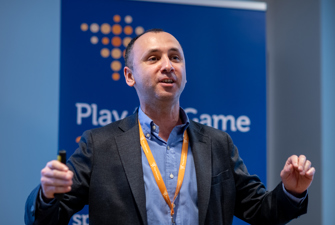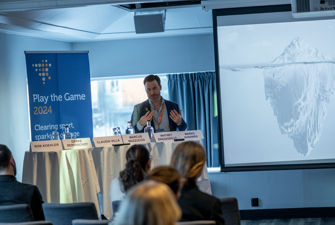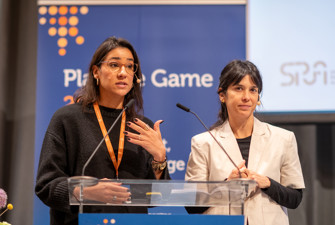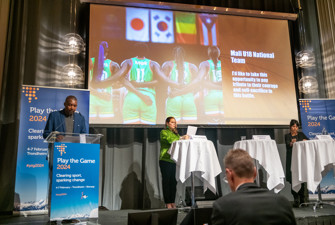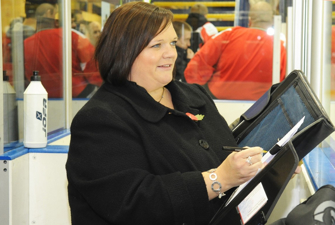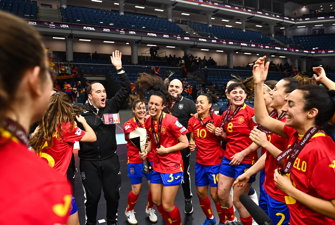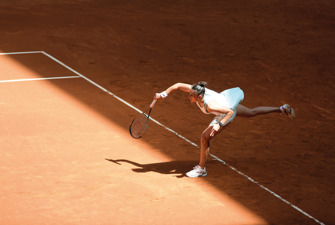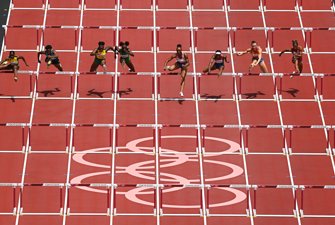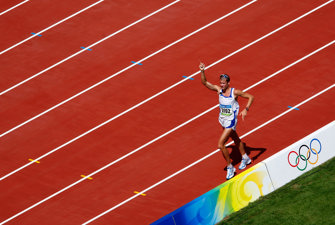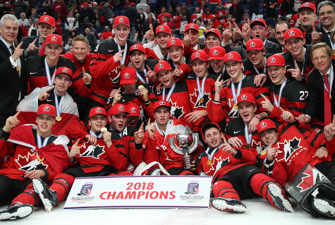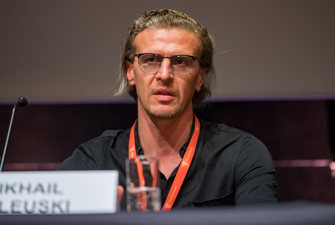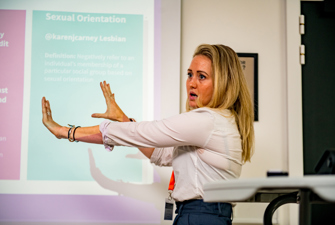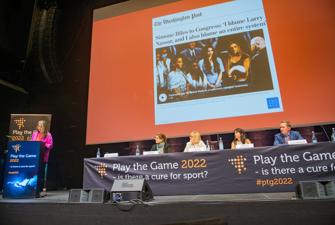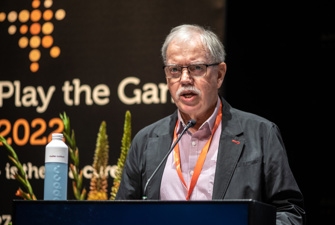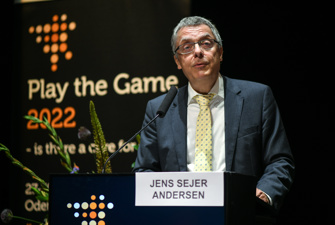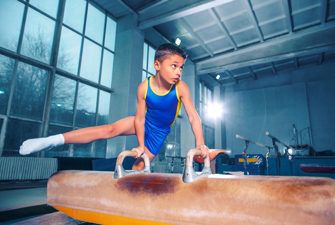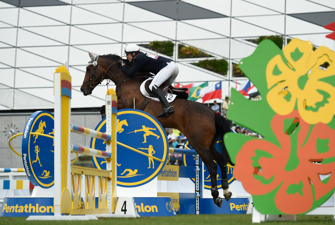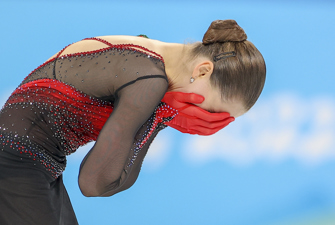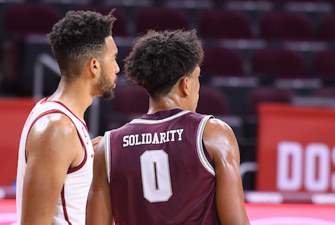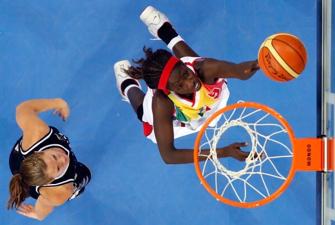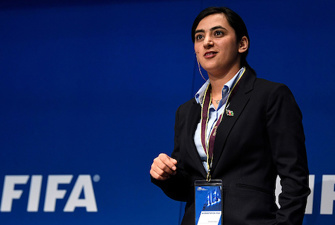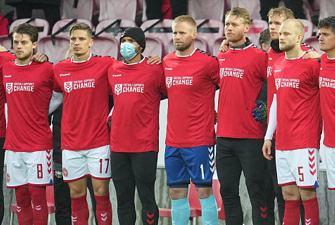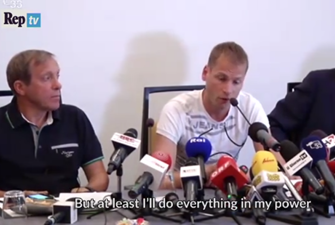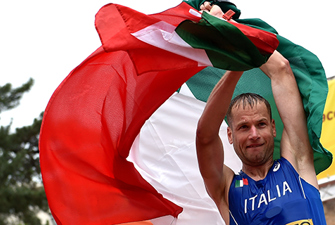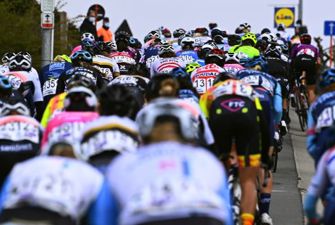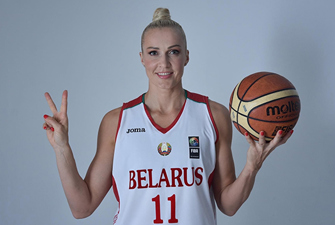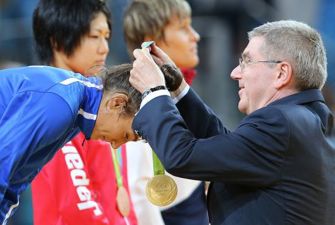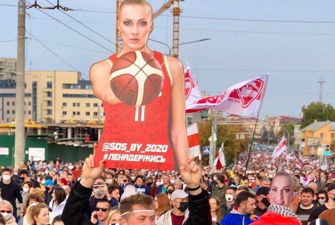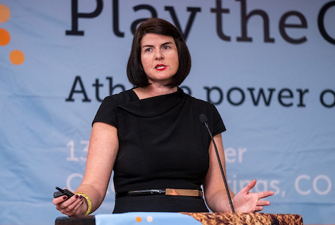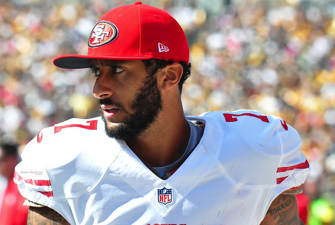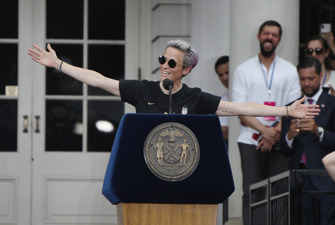Another Canadian hockey scandal
After the publication of Girl Unprotected, Laura Robinson was contacted by a woman who led her attention to yet another Canadian hockey scandal. In this article, first published in The Globe and Mail, Laura Robinson reveals how a Canadian girl's hockey team has hired a convicted felon, guilty of sexual assault amongst other things, as its new coach.
After the publication of the op-ed Girl Unprotected, Laura Robinson was contacted by a woman who led her attention to yet another Canadian hockey scandal. In this article, first published in The Globe and Mail, Laura Robinson reveals how a Canadian girl's hockey team has hired a convicted felon, guilty of sexual assault amongst other things, as its new coach.
Stick handling sexual abuse
The Burlington Barracudas are a top hockey club for girls and women in a suburb 40 kilometres outside of Toronto. They offer teams at the Senior AAA level, Junior, Midget and Bantam AA, as well as competitive younger teams.
In the 2007-08 and 2008-09 season they selected former Sault Saint Marie Greyhounds Memorial Cup champion, which is the junior hockey title in Canada, just one step below the NHL, and CIAU (Canadian Inter-University Athletic Union, now “CIS”) All-Star player Jarret Reid as an Affiliate Instructor to sit on their Hockey Development Committee as a way of making their vision, of being “the most comprehensive female hockey training program in the province” a reality. Reid has also been their power-skating instructor, working with all age levels to age eight.
But Reid slipped through their policy of doing criminal record checks, which turned out to be a serious oversight because while he has great hockey skills, he also has a significant criminal record that includes three sexual assaults, four assaults, one assault causing bodily harm, one break and enter, and one breach of recognizance after he contacted a girlfriend who had reported him to the police.
All charges stem from police reports from three girl-friends in a time period stretching from January 1993 to April 1997. Reid’s last incarceration—his second--was on February 3, 1998 in Pictou County Correctional Centre, where he served a five-month sentence for assault and breach of recognizance. He was still on parole for sexually assaulting and assaulting a previous girlfriend in Sault Saint Marie when he assaulted his girlfriend at St. Francis of Xavier University, where he played centre for the Xmen.
The story on Reid’s sexual assaults and the way in which the hockey establishment managed to not just overlook them, but reward them may be part of the reason he could so smoothly move into a girl’s organization.
The university had just awarded him their prestigious Athletic Leadership Award which recognizes leadership qualities both on and off the ice through a cash scholarship. He also received a Petro-Canada Athletic Scholarship when he joined the Xmen, upon recommendation by the Canadian Hockey Association, now Hockey Canada, and his assistant coach at the Greyhounds, Danny Flynn, who had become head coach at St. Xavier.
Both cash awards were delivered after he was released from prison on the first string of offences and while he was on parole.
After the cash scholarships came being named to the CIAU (now CIS) Hockey All-Star Team in 1997, and playing centre in a game against the NCAA All-Stars in Detroit which Canada won. Trouble was, taking a convicted sex offender across the American border, especially when he is still on parole, is a criminal offense in the U.S. Flynn and the other three coaches of the team said they had no idea they were breaking American law. But Reid knew—Clarence Falconer, his probation officer had clearly outlined that crossing the border could lead to more jail time—in an American jail.
How did all these slip ups occur? Chris Hanlon, president of the Burlington Barracudas, says they run criminal record checks on all of their employees and volunteers, but Reid’s position was through a “verbal contract” with Wave Hockey, a huge private twin rink facility in Burlington that offers amenities such as power skating lessons through High Performance Power Skating Inc. “When we bring in a contractor we believe they are presenting to us an employee who meets our standards; that they have done a police check.” said Hanlon.
He held a closed board of director’s meeting on November 10 to discuss the issue and has taken down the website information that connects Reid to the club. The board no longer is using Reid’s or Wave Hockey’s services and is “conducting an investigation” into the issue. “The safety of our players is always first and foremost” said Hanlon.
Hockey Canada says the last record they have of Reid is a 2005 transfer to a German hockey team, and that he has no certification from them as a coach or power-skater instructor. Wave Hockey advertises Reid as a “Professionally-Certified Instructor” and as “Director, Power Skating Development.”
General Manager of Wave Hockey, Anthony Miele, says Reid had taken some instructor courses from Wave Hockey and that they did their own certification. He added that Reid owned High Performance Power Skating Inc and simply rented ice-time and office space from Wave Hockey.
“He was never an employee of Wave Hockey” Miele stated, though he could not say why Reid was listed as a Wave director or why his phone number was also the Wave Hockey phone number. Wave Hockey has since removed him from their website.
David Conacher, president of Wave Hockey corrected that statement later, saying as of Monday Reid was he no longer an employee of either Wave Hockey or High Performance Power Skating Inc, of which Conacher is also president.
Fran Ryder is the executive director of the Ontario Women’s Hockey Association which is the provincial umbrella organization under which the Burlington Barracudas operate. The OWHA is a member of Hockey Canada and has representation on its Female Hockey Council, though there are only two women out of twenty-eight members on Hockey Canada’s board of directors.
“This is very disturbing for us and I’m sure it is for Burlington. They’re a very good club” says Ryder. She says the OWHA policy on sexual abuse and harassment is very comprehensive. “Our policy is mandatory criminal records checks and participation in the Speak Out program for all coaches, volunteers, officials and staff. The program addresses conduct around harassment and assault.”
Ryder echoes Hanlon’s concern for player safety, but says there are also legal issues to address. “Anybody that goes on the ice with an OWHA team or program needs to be a named insured. Right now we are doing everything we can to educate and re-educate people about their responsibilities. It’s really very important.”
Professor Marge Holman says hockey’s inability to recognize that a convicted sex offender was coaching girls is part of a much larger problem with hockey’s culture. “Hockey seems to be able to pass the buck within the organization” says Holman, who teaches in University of Windsor’s Kinesiology Dept, and advised the IOC in Lausanne on the creation of a sexual harassment policy for Olympic events.
Reid joins a growing list of sex offenders or alleged sex offenders who have operated with impunity in hockey. Coach and former NHL player agent David Frost will hear on November 28 whether or not he is guilty on four counts of sexual exploitation after young women gave testimony in Napanee about compulsory group sex with players and Frost.
“The organization needs to ask themselves, ‘Are we interested in protecting the girls and young women who are being coached, or the reputation of the people we are hiring?” says Holman. “Other things may change about a sex offender, but what does not change is the sense of entitlement these men have in their positions of power. We also know that sex assaulters are not easily rehabilitated. These two things—entitlement and inability to rehabilitate—are not exclusive of one another.”
Holman adds a cautionary note, “Police checks aren’t the be all and end all. They are just one of ten procedures used, not only with volunteers, but with employees. Check the references that they give you, but ask their permission to check their background with people for whom they don’t provide names. If they don’t allow you to do this, red flags should go up. There’s reason why they’re not giving you permission.”
